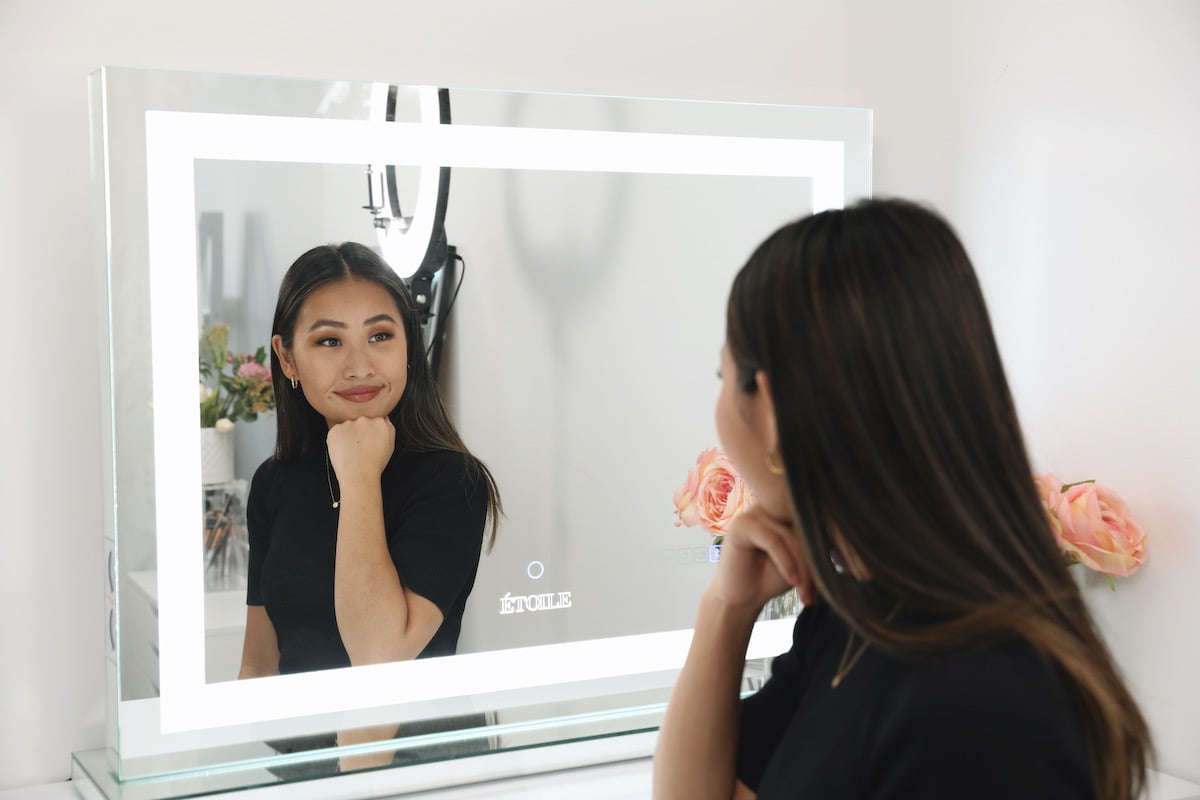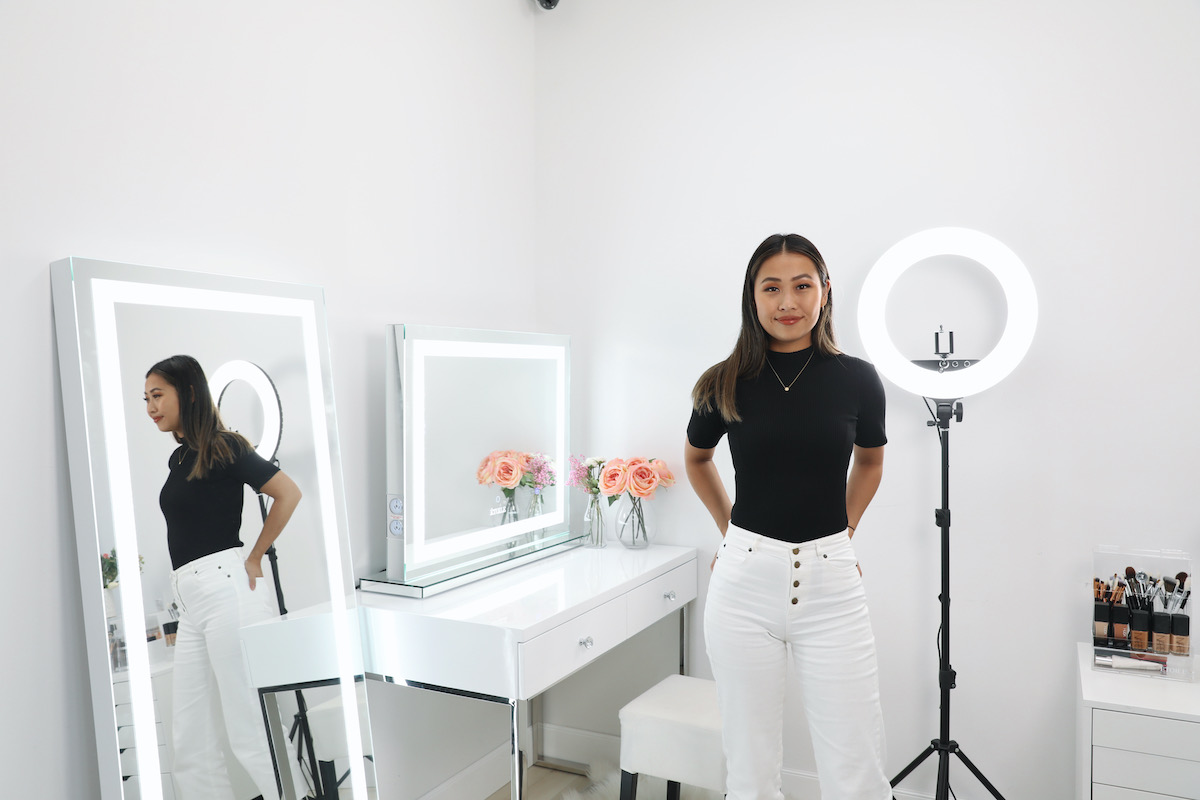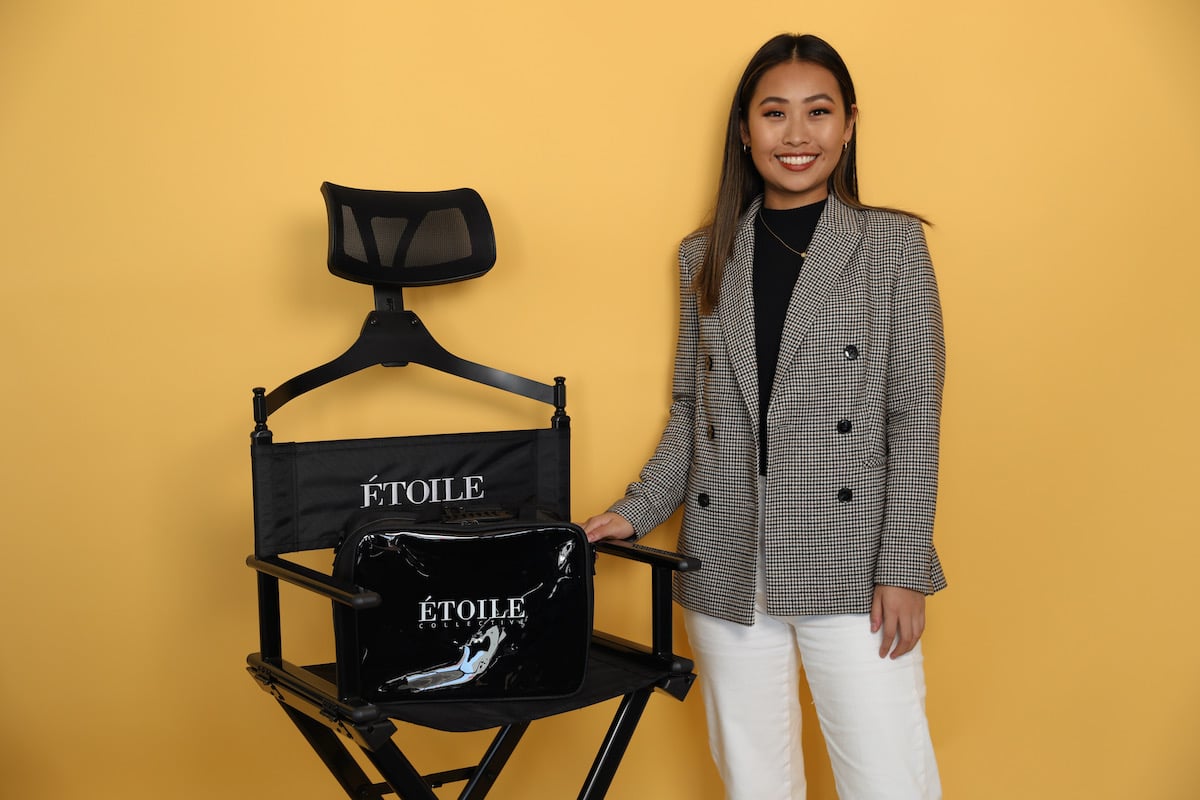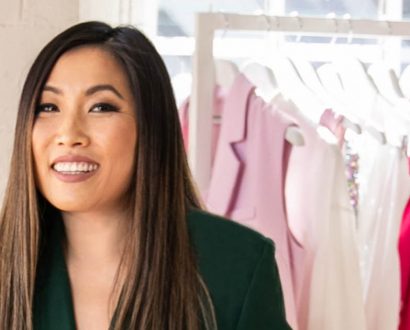Étoile Collective was born when Michelle Hu, a former investment bank analyst, saw a gap in the beauty market.
Her interest in commerce and the beauty industry influenced her to create a brand that would help to simplify and enhance customers’ morning routine.
In 2016, combining business knowledge with the ambition of starting a company, Michelle founded Étoile Collective, a provider of acrylic make-up organisers, make-up bags and vanity mirrors. The beauty business also stocks vanity tables with built-in storage space and sizeable professional ring lights.
“Prior to going full-time, the company grew modestly and completely organically,” Michelle shares. Then, in 2018, the first year of working full-time at Étoile Collective, the business made A$5 million.
“Over time, we will see the normalisation of AR and the virtual try-on of products.” – Michelle Hu
“When I dived into it full-time, everything ramped up,” Michelle tells. “We switched to paid marketing, expanded our SKU range and had a larger pool of capital to test acquisition channels and influencer marketing. We saw the business completely transform, and we’ve been sprinting ever since.”
As the pandemic continues to reshape the world, more consumers are opting to shop online. Consequently, COVID-19 has accelerated the shift away from physical stores to digital shopping by roughly five years, according to new data from IBM’s ‘US Retail Index’.

The research indicates that in the first quarter of 2020, department store sales and those from other ‘non-essential’ retailers declined by 25%. This grew to a 75% decline in the second quarter.
Since the pandemic, the business has experienced a monthly growth average of 25%, enabling Michelle to devise a new financial goal of A$10 million this financial year.
Michelle tells The CEO Magazine that similar to most online businesses and, in particular, ecommerce, Étoile Collective has been fortunate to experience a significant increase in traffic, social engagement and sales volumes.
“Back in March, we noticed an increased search volume for lighting tools and organisation products, so we doubled down on creating content around this,” she says.
“However, these unexpected rises also led to subsequent unexpected stock challenges and put enormous pressure on our back-end systems.
“As we adapted to the landscape, we were constantly looking at our stock management systems and assessing whether we could keep everything in stock, which we could not, and saw certain SKUs sell out for over six weeks.”
“We definitely have our eyes set on international markets but beyond that, on creating a business that will last the test of time.”
The pandemic also meant that in-person activations that Étoile Collective had been working on for several months had to be put on hold.
“While we are disappointed, I feel extremely grateful that we could continue operating even during stage four lockdowns in Melbourne. I’m aware of the tens of thousands of businesses that have not been able to throughout this period.”
Étoile Collective is currently in preparations to launch its monogramming service and expand its travel range. The business is also working to grow its global reach.
Michelle says she is frequently asked about whether the products can be purchased in the US, UK, Canada and New Zealand.
“We definitely have our eyes set on international markets but beyond that, on creating a business that will last the test of time,” she says.
When Étoile Collective started to gain traction on social media, many of its customers were asking whether there was a showroom or stockist they could visit to see the more expensive products on offer.

“We weren’t surprised. After all, these consumers are taking a A$500–A$1,000 leap of faith and hoping it’ll suit their space,” Michelle notes. “But we were disappointed that there wasn’t another solution we could offer.”
While devising a plan, Michelle decided to offer an interactive online experience instead of opening a bricks and mortar store.
“We worked extensively with a leading Finnish augmented reality company to build a virtual experience for our customers, which took just over six months,” she says.
“Now anyone can scan their environment and project an accurate-sized depiction of our vanity mirror or furniture into their space.”
Customers can see where the screw holes are, where the in-built Bluetooth speakers are, the size of the bulbs relative to the mirror and the size of the product compared to something else in the room.
“The response has been fantastic,” Michelle shares. “We have seen a 60% take-up of the feature, which is higher than we had expected.”
AR has much scope within the beauty sector, particularly as the global consumer continues to invest in digitally dominant shopping experiences.
“I think it’s crucial for brands to experiment with technology that will assist consumers, especially as markets are increasingly saturated,” Michelle notes.
“The most beneficial aspect of AR in the beauty industry, in my opinion, is helping consumers take that leap of faith in purchasing a shade of lipstick or colour of eyeshadow.
“Over time, we will see the normalisation of AR and the virtual trying-on of products.”







